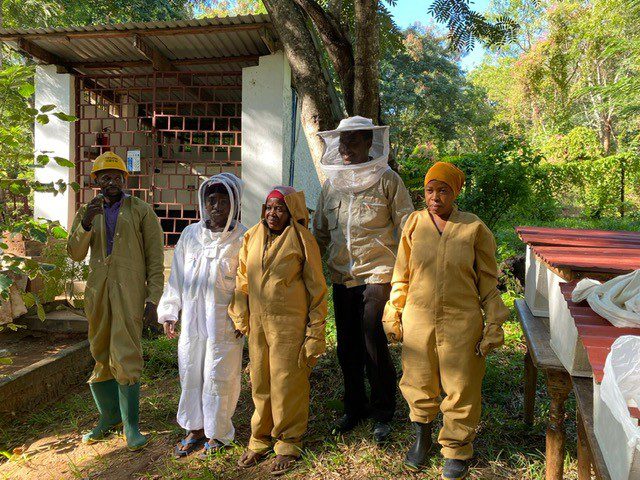Honey not only tastes delicious on breakfast bread, but has also played an important role in medicine for thousands of years. Its antibacterial and healing properties have been known for a long time, which is why it was often used in the past to treat wounds, for example.
However, with the discovery of antibiotics in 1928, it has lost its place as a 'medicine' in conventional medicine and its many uses are therefore largely unknown to us.
For Dr. Michael Fakharani, an orthopaedic surgeon from Bremen, the possibilities of using honey in medicine were previously rather insignificant. It wasn't until a mission to treat clubfeet in Tanzania that he learned something better and remembered honey as a remedy. As he is an enthusiastic hobby beekeeper himself, this naturally aroused his curiosity.
In an interview, he tells us about his experiences and the wonderful project that emerged from them.
Artemed StiftungDr. Fakharani, you are actually a conventional physician and also practice in this field. How did you come to be so convinced of honey as a medical remedy?"
Dr. Fakharani: "During one of my humanitarian missions in Tanzania, I saw how patients' wounds were treated with honey. I was absolutely fascinated by the results: The wounds healed within a very short time. In some cases faster than I knew from my patients here at home. As a natural scientist, this naturally left me no peace and I wanted to find out more about this 'miracle cure'. So I searched for publications and also looked into the different types of honey. The research yielded very interesting results: There were already many specialist articles based on scientific studies that exactly confirmed my observations."
Artemed Stiftung"And what did your search for the different types of honey reveal?"
Dr. Fakharani: "In fact, it is not the different types of honey that play a decisive role here, but the different bee varieties. The particularly valuable honey, which was also used in St. Walburgs' Hospital in Nyangao, Tanzania, comes from so-called 'stingless bees'."
Artemed Stiftung"So bees that can't sting? What makes these bees and their honey so special?"
Dr. Fakharani: "The honey of these bees has special active ingredients and these are also more concentrated. However, a stingless bee also has to work much harder to produce honey: in contrast to the 'normal' honey bee, which produces up to 75 kg of honey per colony per year, a colony of stingless relatives only produces just under one kg! This naturally makes honey particularly expensive and rare."
Artemed Stiftung"So what was your idea?"
Dr. Fakharani: "It has always been important to me to help the destitute people in Tanzania - these are primarily widowed women who have hardly any financial resources and a very poor position in society. My idea was therefore to help these women by giving them the tools to run their own beekeeping business through training and the right equipment. First and foremost, to keep stingless bees."
Artemed Stiftung"What a great idea! Will it work?"
Dr. Fakharani: "Yes, it works wonderfully! The women are incredibly motivated and see their chance to earn money here and produce something good for society at the same time. But for me, the project has many more positive aspects: For example, the stingless bee has a very great benefit in the ecosystem, because it pollinates completely different plants than the normal honey bee. For example, important and valuable crops such as cashew and macadamia nuts and mangoes are primarily dependent on the stingless bee. Keeping these bees therefore also makes a significant contribution to biodiversity. In addition, honey is a super healthy substitute for sugar, which is unfortunately also consumed in Tanzania in far too large quantities."
Artemed Stiftung"A project that has four positive aspects: Work for the poor population, the production of a wonderful healing substance, the protection of biodiversity and a contribution to a healthier diet for the population."
Dr. Fakharani: "Yes, you could sum it up like that!"
Artemed Stiftung"Do you have any plans for the future?"
Dr. Fakharani: "Of course, it would be great if we could expand the project even further. I am planning further assignments in various regions where I would like to pass on the tools of the trade of beekeeping to the people. I would be particularly pleased if it could also become part of the 'Community Health Project' at Artemed Stiftung in the future."
Artemed Stiftung: "It would actually fit in very well with this project! Dear Mr. Fakharani, thank you very much for telling us about your project. We look forward to further cooperation and wish you all the best with the project!"



